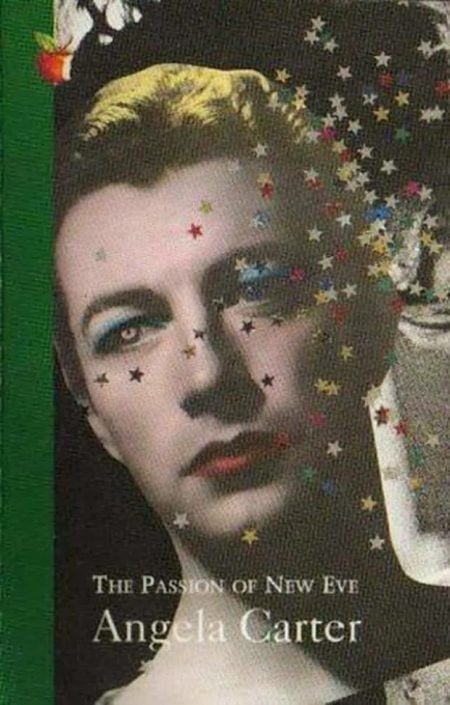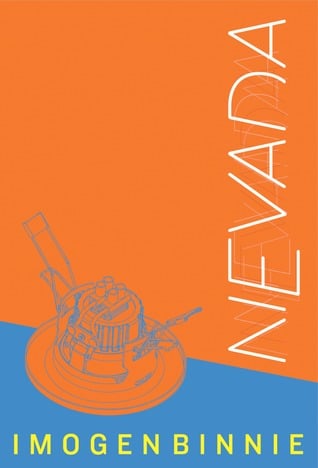All My Stars (16)
By:
April 21, 2016

One in a weekly series in which Joanne McNeil recommends books, films, exhibitions, and more. You can also subscribe to the All My Stars newsletter here.

After reading several reviews, I was very eager to pick up Helen Oyeyemi’s books. But then I read just a little more, and I was disappointed to learn that Boy Snow Bird is startlingly transphobic. It says a lot about the prejudices in publishing that even though likely a dozen people saw the draft before it was published, no one — not her agent, her editor, friends, anyone — stepped in and said, Hey, maybe this part should go and here is why. It also says something that book reviews in gatekept publications missed the transphobia and it was only on blogs and tumblrs that I read these objections.
The novel was published in 2014. The author is a young black woman. Fiction remains not just overwhelmingly white, cis, straight, and male, but also Ivy-educated and Park Slope-residing. So I have mixed feelings about avoiding the Oyeyemi book, but I can’t imagine enjoying the parts of it that are good, now knowing where the story leads.
So many feminist science fiction writers in some decades past, wrote stories about waking up, Freaky Friday-style, as the other gender and a lot of this writing is unpleasant to read now. Or else there are needlessly transphobic storylines like in Iain Banks’s The Wasp Factory. Joanna Russ, sometime before her death in 2011, apologized for the transphobia in A Female Man, but not quite forcefully enough, alas, because I am getting a bunch of broken links where her comments should be.
A few months ago, Jacqueline Mabey asked me to lend a book to the library she was assembling at Usdan Gallery at Bennington College. The exhibition, Utopia is no place, Utopia is process, just opened this month. She asked for books that were “important to [my] thinking about feminism and gender.” I sent in my suggestion, then a few months later, rereading the book I recommended, I realized I better contextualize this selection, as it is much more of a problematic fav than I originally thought. I also offered another suggested novel for the library. The books are Angela Carter’s Passion of New Eve and Imogen Binnie’s Nevada, and attached is the note I wrote for the library:

More than a decade ago, I came across The Passion of New Eve in stacks of remainders at Powell’s Books in Chicago. And how could I resist the fey Bowie-like boy on the cover, with watercolored-on makeup and a sprinkling of office supply metallic stars, looking like Warhol decorated the inside of a middle school student’s locker.
Backflap descriptions rarely did Angela Cater justice. The words people use to describe her books — “childlike,” “magical” — make it sound like she wrote like Melanie Griffith talks, but her stories were filled with the grit and perversity of an unsafely lived childhood. Precocity was her camouflage. In her long essay, The Sadeian Woman, she even reflected on how an affected childlike manner and strategic precocity might protect a curious woman from having her intellectual pursuits crushed by the world.
The Passion of New Eve showcases her imagination, craft, and darkness. Her prose is bursting with poetry and life straight through to the end. Often brutal scenes are written in dazzling, beautiful language and that mismatch infuses the novel with an uncanny energy. Its the story of a self-absorbed womanizing Englishman in dystopic New York. He is kidnapped by a group of women in the desert and forced to live as a woman.
This book first came to mind as something “important to [my] thinking about feminism and gender” because I was knocked off my feet when I first read it. Internalized misogyny had me believing that things feminine and intellectual were always at odds with each other and this book helped dislodge that unhelpful insecurity of mine. But in later years, I have come to think of the novel as laced with an element that is problematic and insensitive.
Angela Carter is a cis woman and The Passion of New Eve, like Orlando, considers gender transition as a thought experiment rather than a lived experience. Written in 1977, it wants for queerness and it appears the author was largely unfamiliar with experiences of gender dysphoria or the lives of actual trans people when she wrote it.
A short essay on Keep Your Bridges Burning holds the author accountable: “the language, the speculation, the narrative discussion of [a character’s] sex is so brutal, mean, and located in such an ungendering cultural position, that it just broke my heart. Like outside of the text. My actual heart in my actual ribcage; it fell, my mood deflated, and I had to admit that Angela Carter’s analysis is viciously acute about everything except me. So in this novel Angela Carter explicitly excludes trans women from her feminism.”
The author of that piece, Imogen Binnie, herself wrote a terrific novel, Nevada. It is a corrective to much of Carter’s casual ignorance and so much more. A few years ago, it was selected as a book of the month at Emily Books, the exceptionally curated online feminist bookstore, and as she says in an interview there, “I was thinking a lot about what kinds of stories we are told and therefore get to tell about trans women and how they almost never have much to do with the lived experiences of, like, myself, or most of my friends. So this project, for better or worse, was just to tell a different story. And also, to write a book I wish I could read. So while writing the book wasn’t for an audience in a specific way, I wrote it with an awareness of (and anger at) the boring tropes we see in trans narratives over and over.”
Carter died in 1992. I wish she were alive today so she could read Nevada. Or essays by Katherine Cross or add books like Kate Bornstein’s Gender Outlaw and Janet Mock’s Redefining Realness to her library. Or just get online and learn basic stuff like this Autostraddle piece, “It’s Time For People to Stop Using the Social Construct of “Biological Sex” to Defend Their Transmisogyny.”
I want to believe that Angela Carter would have loved to learn that gender, sexuality, and identity are even more complex than she considered in this novel. She was such a thoroughly curious person that I imagine she would have been eager to shed her ignorance of these matters. But I don’t know, which is why I recommend this novel with reservation and sadness and the hope that people who read the book today will pair it with more enlightened contemporary literature that Carter never lived to see.
CURATED SERIES at HILOBROW: UNBORED CANON by Josh Glenn | CARPE PHALLUM by Patrick Cates | MS. K by Heather Kasunick | HERE BE MONSTERS by Mister Reusch | DOWNTOWNE by Bradley Peterson | #FX by Michael Lewy | PINNED PANELS by Zack Smith | TANK UP by Tony Leone | OUTBOUND TO MONTEVIDEO by Mimi Lipson | TAKING LIBERTIES by Douglas Wolk | STERANKOISMS by Douglas Wolk | MARVEL vs. MUSEUM by Douglas Wolk | NEVER BEGIN TO SING by Damon Krukowski | WTC WTF by Douglas Wolk | COOLING OFF THE COMMOTION by Chenjerai Kumanyika | THAT’S GREAT MARVEL by Douglas Wolk | LAWS OF THE UNIVERSE by Chris Spurgeon | IMAGINARY FRIENDS by Alexandra Molotkow | UNFLOWN by Jacob Covey | ADEQUATED by Franklin Bruno | QUALITY JOE by Joe Alterio | CHICKEN LIT by Lisa Jane Persky | PINAKOTHEK by Luc Sante | ALL MY STARS by Joanne McNeil | BIGFOOT ISLAND by Michael Lewy | NOT OF THIS EARTH by Michael Lewy | ANIMAL MAGNETISM by Colin Dickey | KEEPERS by Steph Burt | AMERICA OBSCURA by Andrew Hultkrans | HEATHCLIFF, FOR WHY? by Brandi Brown | DAILY DRUMPF by Rick Pinchera | BEDROOM AIRPORT by “Parson Edwards” | INTO THE VOID by Charlie Jane Anders | WE REABSORB & ENLIVEN by Matthew Battles | BRAINIAC by Joshua Glenn | COMICALLY VINTAGE by Comically Vintage | BLDGBLOG by Geoff Manaugh | WINDS OF MAGIC by James Parker | MUSEUM OF FEMORIBILIA by Lynn Peril | ROBOTS + MONSTERS by Joe Alterio | MONSTOBER by Rick Pinchera | POP WITH A SHOTGUN by Devin McKinney | FEEDBACK by Joshua Glenn | 4CP FTW by John Hilgart | ANNOTATED GIF by Kerry Callen | FANCHILD by Adam McGovern | BOOKFUTURISM by James Bridle | NOMADBROW by Erik Davis | SCREEN TIME by Jacob Mikanowski | FALSE MACHINE by Patrick Stuart | 12 DAYS OF SIGNIFICANCE | 12 MORE DAYS OF SIGNIFICANCE | 12 DAYS OF SIGNIFICANCE (AGAIN) | ANOTHER 12 DAYS OF SIGNIFICANCE | UNBORED MANIFESTO by Joshua Glenn and Elizabeth Foy Larsen | H IS FOR HOBO by Joshua Glenn | 4CP FRIDAY by guest curators

